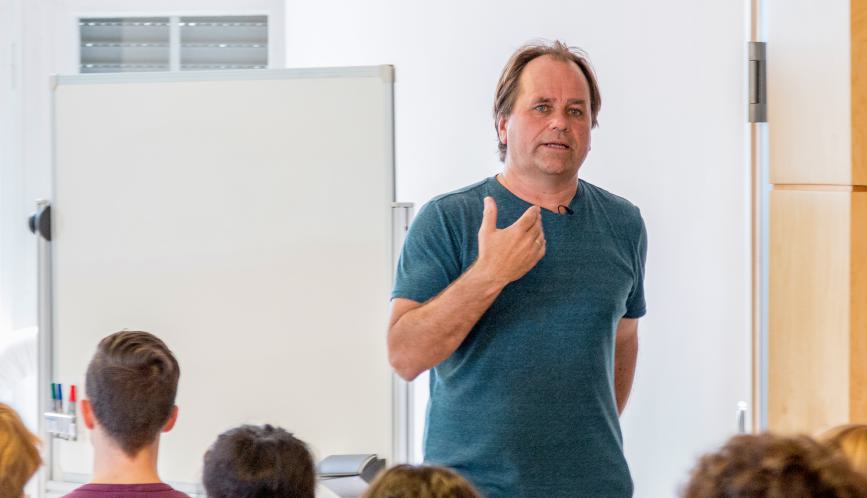MIP network member Bertil Tungodden is a Professor of Economics at the Norwegian School of Economics (NHH). He is also Centre Director of the Centre of Excellence FAIR (Centre for Experimental Research on Fairness, Inequality and Rationality), Co-Director of the research group The Choice Lab, and an Associated Senior Researcher at Chr. Michelsen Institute (CMI). He was Chairman of the Norwegian Scientific Council for Economics from 2007 to 2009. His research interests are experimental and behavioral economics, development economics, distributive justice, and social choice theory. He was recently awarded an ERC Advanced Grant for his project “Fairness and the moral mind.” He was a faculty member at HCEO’s Summer School on Socioeconomic Inequality Bonn in 2016.
Describe your area of study and how it relates to current policy discussions surrounding inequality.
Inequality is one of the most pressing issues in the modern world and concerns for inequality figure prominently in almost all spheres of society. In my research, I address three fundamental questions in the inequality debate: Which inequalities do we consider unfair? What are the drivers of unfair inequalities? What shapes our fairness views? These three questions are essential for understanding how to approach inequality in a modern democratic society; we need to know which inequalities people consider to be unfair, we need to know the determinants of unfair inequalities, and we need to know how the social institutions shape people’s conception of unfair inequality. I conduct experimental research on each of these dimensions where I combine different methodological approaches and large administrative data sets with different types of experiments, including lab experiments, incentivized experiments on nationally representative samples, and randomized controlled trials. My research also draws actively on the other social sciences and philosophy.
What areas in the study of inequality are most in need of new research?
I believe that we need much more research on how the idea of personal responsibility shapes the inequality debate and our policies targeting inequality. The principle that people should be held personally responsible for the consequences of their choices is a fundamental moral ideal in Western societies, but the interpretation and application of this principle have been a heated political issue for centuries. In fact, it has been argued in recent years that American politics has become "a personal responsibility'' crusade; for example, the significant drop in government transfers to single parents and families with nonemployed members appears to be rooted in the presumption that these groups should be held personally responsible for their situation (see Robert A. Moffitt's Presidential Address to the Population Association of America in 2015, ''The Deserving Poor, the Family, and the U.S. Welfare System"). The principle of personal responsibility has also become a prominent notion in health policy debates in many industrialized countries, where lifestyle-related diseases, such as high cholesterol and obesity, contribute importantly to the burden of disease and costs of health-care. Indeed, it has been argued that much of the political discourse on life-style related diseases rests on how to understand personal responsibility.
What advice do you have for emerging scholars in your field?
I hope that many young scholars will join the very active research agenda that aims to better understand the moral mind and how it interacts with selfish considerations in shaping our views on inequality. In this work, I believe it is extremely fruitful to be inspired by research that is going in all the social sciences and philosophy and combine them with the stringent methods of economics. A very important topic for the coming years will be to better understand how social institutions shape our preferences and beliefs, which is of great importance for any policy debate on how to tackle inequality. Finally, in terms of methodology, I believe that it becomes even more important to have large samples, clean designs, and a pre-analysis plan for your experimental work.



